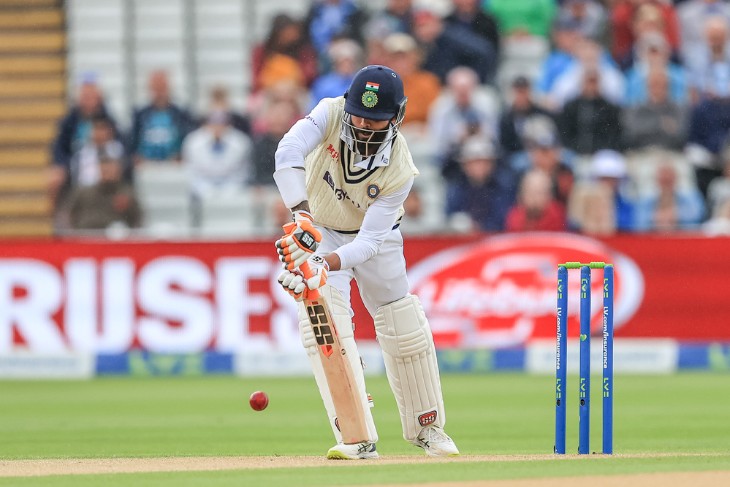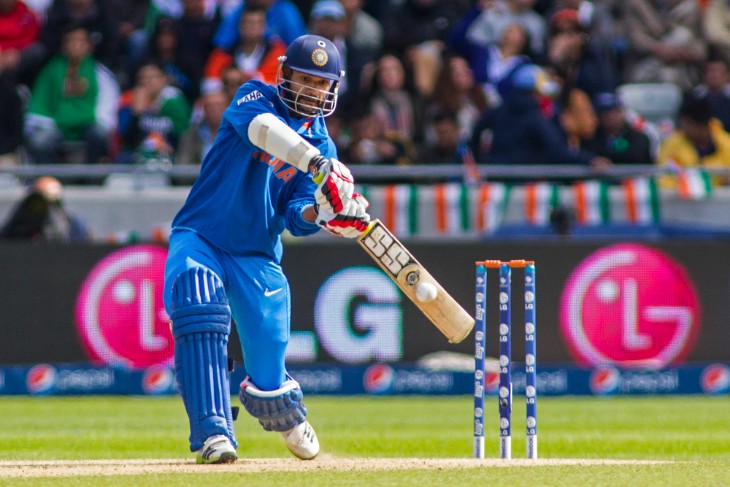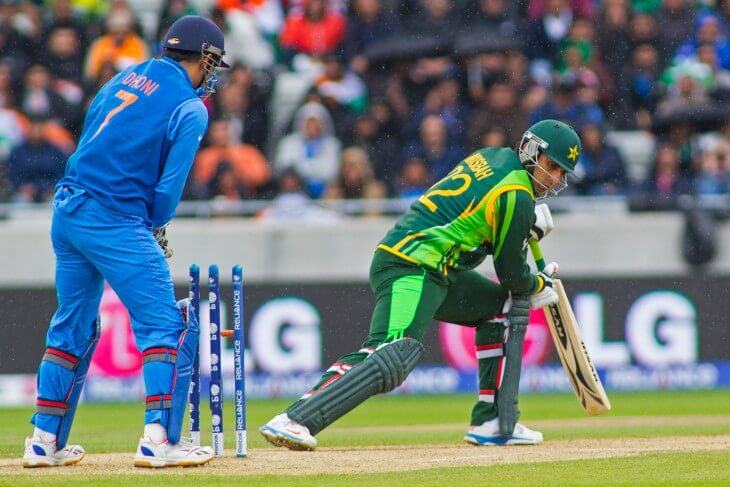Cricket stands as an integral part of England and Wales' sporting fabric, deeply embedded in its culture and heritage. At the helm of overseeing this cherished sport sits the England and Wales Cricket Board (ECB), entrusted with the governance, development, and promotion of cricket across various levels. With a history steeped in tradition and an evolving landscape, the ECB plays a central role in steering the course of cricket, from shaping domestic competitions to managing the national teams. Delving into the intricate dynamics of its governance reveals a tapestry of challenges, innovations, and the quest for sustainability, all contributing to the compelling narrative of cricket in these regions.
Historical Context of Cricket Governance
The historical context of cricket governance in the UK spans several centuries and has evolved through various stages, reflecting societal changes, governance structures, and the sport's significance.
Evolution of Cricket Governance:
- Early Origins: Cricket's roots in England can be traced back to the 16th century, gaining popularity in the 17th and 18th centuries as a pastime among the aristocracy and landed gentry.
- Marylebone Cricket Club (MCC): Founded in 1787, the MCC played a crucial role in the sport's early governance. It formulated rules, including the Laws of Cricket, which laid the foundation for the game's regulation.
- Formation of Governing Bodies: As cricket expanded, regional and local associations emerged, leading to the establishment of governing bodies at different levels to oversee the sport's administration.
- Centralization and Professionalization: In the late 20th century, there was a shift towards centralization and professionalization of cricket governance, culminating in the creation of the England and Wales Cricket Board (ECB) in 1997. The ECB unified the administration of cricket at all levels under one governing body.
Impact of Historical Events:
- Industrial Revolution: The Industrial Revolution brought changes to society, impacting leisure activities and contributing to the growth of cricket. It led to the formation of cricket clubs and leagues.
- Imperial Influence: Cricket became associated with the British Empire, spreading to colonies and dominions. The governance structures adapted to oversee the sport in various regions influenced by British colonialism.
- World Wars: The World Wars interrupted cricket activities but also led to shifts in the sport's dynamics, including changes in playing styles, the emergence of new talents, and adaptations in governance to cope with wartime challenges.
- Professionalization and Commercialization: The late 20th century witnessed a move towards professional leagues, increased media coverage, and commercialization. This prompted governance bodies to adapt to the demands of a more professionalized sporting environment.
Role of Key Organizations:
- Marylebone Cricket Club (MCC): Initially, the MCC held significant influence, setting the rules and standards for cricket. Over time, its role evolved, with a shift in governance responsibility to newer bodies like the ECB.
- County Cricket Boards: Alongside the MCC, county cricket boards played a pivotal role in governing cricket at the regional level, shaping talent development and domestic competitions.
Structure and Functions of the ECB
- The England and Wales Cricket Board (ECB) serves as the governing body for cricket in England and Wales. Its structure and functions encompass various levels of the sport, from grassroots development to elite professional cricket.
Structure of the ECB:
- Board of Directors: The highest governing body of the ECB, comprising influential figures from cricket, business, and administration. It sets the strategic direction and oversees the functioning of the organization.
- Executive Leadership: The ECB is led by an executive team responsible for day-to-day operations, including the Chief Executive Officer (CEO) and other key executives overseeing different departments like finance, operations, and cricket development.
- Committees and Subcommittees: These bodies focus on specific areas such as finance, cricket operations, governance, and ethics, contributing expertise and guidance to the ECB's decision-making processes.
Functions of the ECB:
Administration and Governance:
- Regulatory Oversight: Formulating and implementing rules and regulations governing cricket in England and Wales, including player contracts, disciplinary procedures, and anti-doping policies.
- Financial Management: Ensuring sustainable financial health by managing revenue streams, distributing funds to counties and clubs, and investing in cricket infrastructure and development programs.
Domestic Cricket Development:
- County Cricket: Overseeing the structure and competitions in the County Championship, One-Day Cup, and T20 Blast, providing a platform for domestic talent and professional cricket.
- Grassroots and Youth Development: Promoting cricket at the grassroots level through various initiatives, coaching programs, and schools, nurturing talent and fostering interest in the sport among young players.

International Representation:
- England National Teams: Selecting, managing, and supporting the England men's and women's cricket teams for international competitions across formats like Test matches, ODIs, and T20Is.
- Participation in ICC Affairs: Engaging with the International Cricket Council (ICC) on global cricket matters, representing England and Wales' interests in international cricket governance, and participating in ICC tournaments.
Commercial and Media Relations:
- Broadcasting and Sponsorship: Negotiating broadcasting rights, sponsorship deals, and partnerships to generate revenue and promote cricket across various media platforms.
- Promotion and Marketing: Implementing strategies to increase the sport's visibility, attract audiences, and engage fans through marketing campaigns and events.
Overall, the ECB's multifaceted functions revolve around overseeing the governance, development, and promotion of cricket at all levels within England and Wales. Its structure ensures a comprehensive approach to managing the sport, from grassroots initiatives to elite international competitions, while balancing financial sustainability and growth with the sport's values and traditions.
Role of ECB in Domestic Cricket
The England and Wales Cricket Board (ECB) plays a pivotal role in shaping and overseeing domestic cricket within England and Wales. Its influence spans various aspects of the game at the regional and national levels.
Management of County Cricket:
Structure and Competitions:
The ECB oversees the structure and organization of county cricket, including the County Championship (first-class cricket), the One-Day Cup, and the T20 Blast.
It sets the schedule, format, and regulations for these competitions, aiming to provide a platform for counties to compete at different formats and levels.
Player Development and Talent Identification:
Through county cricket, the ECB focuses on talent identification and player development. It provides a pathway for aspiring cricketers to progress from youth setups to the professional level.
The development of talented players within county setups is crucial for sustaining the quality of cricket and nurturing future international stars.
Financial Support and Infrastructure:
The ECB allocates funds to county cricket clubs, supporting their operational costs, player salaries, and infrastructure development.
It aims to ensure financial stability across counties while encouraging investments in facilities and coaching programs to enhance the overall standard of domestic cricket.
Grassroots Engagement and Community Development:
Alongside professional cricket, the ECB emphasizes grassroots engagement by encouraging participation in local clubs, schools, and communities.
It promotes initiatives for youth development, coaching programs, and school cricket to attract young talent and instil a love for the sport from an early age.
Balancing Domestic and International Commitments:
The ECB manages the domestic cricket calendar, aligning it with international schedules to accommodate player availability and avoid conflicts between domestic and international commitments.
Balancing the interests of county clubs, players, and the national team while ensuring a competitive and packed domestic schedule is a key challenge.
Promotion of Women's Cricket:
The ECB has been instrumental in promoting and expanding women's cricket at the domestic level. It oversees women's county cricket competitions to provide a platform for female cricketers to showcase their skills.
Investment and Development:
The ECB invests in women's cricket development programs, providing resources, coaching, and infrastructure to nurture talent and improve the standards of the women's game domestically.
Overall, the ECB's role in domestic cricket involves not only the management of county competitions but also fostering a comprehensive ecosystem for cricket development. It focuses on talent identification, infrastructure development, community engagement, and the growth of women's cricket to ensure a robust and inclusive domestic cricket landscape within England and Wales.
ECB's Influence on National Teams
The England and Wales Cricket Board (ECB) wields significant influence over the national teams, both men's and women's, shaping their composition, development, and competitive strategies for international cricket.
Selection and Management of National Teams:
The ECB holds the responsibility of selecting and managing the England men's and women's cricket teams across various formats of the game, including Test matches, One-Day Internationals (ODIs), and Twenty20 Internationals (T20Is). The selection process involves a meticulous assessment of player performance in domestic cricket, considering both individual prowess and team dynamics. The board, through its selection committees, endeavours to assemble squads that not only exhibit talent but also align with strategic objectives, seeking a balance between experienced players and emerging talents.
Player Development and Support:
Beyond team selection, the ECB plays a crucial role in the development and support of players representing the national teams. It focuses on providing adequate resources, facilities, and coaching to hone the skills of players at the elite level. The board invests in specialized training programs, sports science, and sports medicine to enhance player fitness, mental resilience, and overall performance. Additionally, the ECB manages player contracts, ensuring fair remuneration and support structures for national team players, thereby fostering an environment conducive to sustained success.
International Competitions and Relations with ICC:
The ECB actively engages with the International Cricket Council (ICC) to represent England and Wales' interests in international cricket. It participates in ICC tournaments, champions policies and regulations that align with its vision for the sport, and contributes to the development and governance of cricket on a global scale. The board's influence within the ICC impacts decisions on tournament scheduling, rule changes, and the broader framework of international cricket, often reflecting England and Wales' perspectives and priorities.
Balancing Domestic and International Commitments:
Managing the balance between domestic cricket commitments and the demands of international fixtures remains a critical challenge for the ECB. Juggling the schedules to accommodate both domestic tournaments and international tours while ensuring players' well-being and readiness for high-stakes international competitions requires strategic planning and coordination. The board's decisions regarding the timing of domestic tournaments vis-à-vis international series significantly affect player availability and the overall competitive landscape.
In essence, the ECB's influence on national teams extends beyond mere administration; it encompasses the holistic development, strategic planning, and representation of England and Wales' cricketing ambitions on the international stage. Through meticulous selection processes, robust player support structures, and strategic engagements with global cricketing bodies, the board steers the trajectory of the national teams, aiming for sustained excellence and competitive prowess in international cricket.
Policies and Regulations
Policies and regulations within cricket, governed by the England and Wales Cricket Board (ECB), are essential to ensure fairness, integrity, and consistency across all levels of the sport, from grassroots to elite professional competitions. These policies cover various aspects, including player conduct, anti-doping measures, contracts, and the overall governance framework.
Formulation of Rules and Regulations:
The ECB is tasked with formulating and implementing the rules and regulations that govern cricket within England and Wales. This includes the adherence to the Laws of Cricket, established by the Marylebone Cricket Club (MCC), which serve as the foundation for the sport's rules worldwide. However, the ECB often supplements these laws with specific regulations tailored to the domestic cricket landscape, encompassing player eligibility, match formats, scheduling, and disciplinary procedures.
Player Contracts and Financial Regulations:
The board manages player contracts, setting out terms and conditions for professional players participating in domestic cricket. These contracts encompass aspects such as remuneration, obligations, performance-related bonuses, and code of conduct guidelines. Financial regulations are also in place to ensure fiscal responsibility among counties and clubs, aiming to maintain financial equilibrium and fair competition while preventing financial impropriety.
Disciplinary Framework:
The ECB oversees a comprehensive disciplinary framework to address infractions and misconduct within the sport. This framework outlines procedures for addressing breaches of conduct, player behaviour, and ethical violations. It includes penalties, sanctions, and appeals processes designed to maintain the integrity of the game and uphold high ethical standards among players, officials, and stakeholders.
Anti-Doping Policies:
In line with global sports standards, the ECB implements robust anti-doping policies to ensure a clean and fair playing field. These policies involve testing protocols, education programs, and sanctions for players found in violation of anti-doping regulations. The aim is to preserve the sport's integrity while safeguarding the health and well-being of athletes.
Diversity and Inclusion Initiatives:
The ECB has increasingly emphasized policies geared toward fostering diversity, equity, and inclusion within cricket. Efforts include initiatives to enhance representation across genders, ethnicities, and backgrounds, promoting accessibility and equal opportunities for participation and advancement within the sport.

Challenges and Controversies
Challenges and controversies in cricket governance, particularly within the England and Wales Cricket Board (ECB), have been varied and have influenced the sport in multifaceted ways.
Financial Challenges:
Financial Disparities among Counties: Discrepancies in financial resources among county cricket clubs have led to concerns regarding the competitiveness of the domestic circuit. Some clubs struggle financially, impacting their ability to attract top talent or invest in infrastructure.
Balancing Financial Viability and Player Welfare: Striking a balance between financial sustainability and player welfare remains a challenge. Scheduling congestions and demands for more cricket, particularly in T20 leagues and international fixtures, can lead to burnout and injury risks for players.
Governance and Decision-Making:
Centralization vs. County Autonomy: There have been debates about the level of centralization in cricket governance. Balancing the autonomy of county boards with centralized decision-making by the ECB has been a point of contention.
Rule Changes and Formats: The introduction of new formats (like the Hundred) or rule changes has sparked debates among fans, players, and traditionalists, with differing opinions on their impact on the purity of the game and its traditions.
Inclusivity and Representation:
Diversity and Inclusion: Cricket has faced scrutiny regarding diversity and inclusivity, particularly in higher administrative and coaching positions. Efforts to address the underrepresentation of certain demographics within the sport have been ongoing.
Accessibility and Grassroots Development: Ensuring equal access and opportunities for aspiring cricketers from all backgrounds remains a challenge. Some areas lack adequate infrastructure and resources for grassroots development, limiting talent identification and nurturing.
External Factors:
Media and Broadcasting Rights: The increasingly competitive market for broadcasting rights has put pressure on cricket boards to strike lucrative deals while ensuring the sport remains accessible to a wider audience.
Global Health Crises: Events like the COVID-19 pandemic disrupted cricket schedules, impacting revenues, player availability, and the overall stability of the sport.
Controversies:
Match-fixing and Corruption: Instances of match-fixing scandals or allegations of corruption have tarnished the sport's reputation and raised concerns about ethical standards and the integrity of cricket.
Player Behavior and Disciplinary Issues: Incidents involving player misconduct, breaches of codes of conduct, or controversial on-field behaviour have led to disciplinary actions and debates regarding player accountability.
Addressing these challenges requires a delicate balance between tradition and innovation, financial prudence and player welfare, and the pursuit of commercial interests while upholding the integrity and values of the sport. The ECB continually navigates these complexities to ensure the sustained growth and success of cricket in England and Wales.
Future Outlook and Recommendations
The future outlook for cricket governance under the England and Wales Cricket Board (ECB) holds promise and challenges, presenting opportunities for evolution and growth in various dimensions of the sport.
Embracing Innovation and Adapting Formats:
The future of cricket governance may see further exploration and integration of innovative formats, aiming to attract diverse audiences while maintaining the essence of the traditional game. The success or evolution of formats like the Hundred and other T20 leagues may prompt the ECB to continue experimenting with new structures and tournaments to engage a wider fan base. However, striking a balance between tradition and innovation will remain crucial to preserving the core values of cricket.
Sustainability and Financial Prudence:
Ensuring financial sustainability across all levels of cricket will be imperative. The ECB may explore strategies to support financially struggling countries while fostering a more equitable distribution of resources. Efforts to enhance revenue streams, optimize broadcasting deals, and invest in grassroots development without compromising player welfare could define the financial stability of the sport.
Technological Integration and Fan Engagement:
Continued integration of technology, including advanced analytics, virtual reality experiences, and enhanced broadcasting technologies, will likely redefine the fan experience. The ECB might explore ways to leverage technology to enhance fan engagement, offering interactive and immersive experiences to cater to evolving audience preferences.
Diversity and Inclusion Initiatives:
Further initiatives focused on diversity, equity, and inclusion within cricket's governance structures may gain prominence. The ECB might intensify efforts to address representation gaps across genders, ethnicities, and backgrounds, promoting inclusive practices in decision-making roles and coaching staff. Strategies aimed at making cricket more accessible and welcoming to individuals from diverse communities could be prioritized.
Recommendations for Sustainable Growth:
- Investment in Grassroots Development: Prioritizing grassroots cricket programs and infrastructure investments to nurture talent from an early age and ensure a robust pipeline of future cricketers.
- Balancing Traditional Values with Modernization: Embrace innovation while preserving the spirit and fundamentals of the sport to cater to diverse audiences without alienating traditional fans.
- Transparency and Governance Reforms: Enhance transparency in decision-making processes and consider governance reforms to ensure accountability and inclusivity within the administrative structures.
- Player Welfare and Workload Management: Continuously evolve strategies to balance the demands of a packed cricket calendar with player welfare, emphasizing rest periods and managing workload to prevent player burnout.
- Community Engagement and Accessibility: Strengthen ties with local communities, schools, and non-traditional cricket areas to promote inclusivity and broaden cricket's reach across demographics.
In essence, the future of cricket governance under the ECB rests on its ability to adapt, innovate, and balance commercial viability with the preservation of the sport's ethos and inclusivity, ensuring a sustainable and thriving cricket ecosystem in England and Wales.
Summary
To summarize, the England and Wales Cricket Board (ECB) stands at a pivotal juncture, poised to navigate challenges while embracing opportunities for the sport's evolution. With a rich history and a multifaceted role in governance, the ECB faces the task of balancing tradition and innovation, financial stability, and player welfare. The future holds promise for cricket's growth through inclusivity, technological integration, and strategic reforms. As the ECB charts the path forward, fostering grassroots talent, promoting diversity, and engaging fans will be instrumental in ensuring a vibrant and sustainable future for cricket in England and Wales. The board's ability to adapt, innovate, and uphold the values of the sport will shape the trajectory of cricket governance in the years to come.
For more information:


